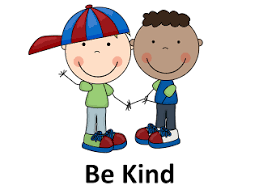From The Counselling Suite

Does Happiness Matter?
Parents, generally when asked what they want most for their child, respond with ‘happy’ at the very start of a list which includes among other things, ‘healthy’ and ‘successful’. As parents, we worry when our child isn’t happy – we want them to be ‘happy’ all the time. Parents are concerned when their child doesn’t want to go to school, isn’t happy with a teacher or a subject, or a group of friends, or the result of a game of soccer. Often the first reaction of parents is to attempt to fix whatever it is that isn’t making their child happy, rather than allowing the child to endure the unhappiness and solve the problem themselves.
Although happiness relates to how we feel, it is not just a passing emotion, but one of a range of emotions that are felt daily – some of these emotions are positive while others are negative such as fear and anger. More important than being in a continual state of happiness, children need to be able to make the most of the good times, but also to be able to cope with the difficult or bad things that life throws at them sometimes.
What can parents do then to ensure that their child can make the most of the good times, and cope with the bad times? Well there are many traits that as parents we can model and encourage in our children to help them get the best out of every experience. The following is a list of behaviours, (though not exhaustive) which will foster a sense of wellbeing and happiness:
- Learning to forgive – letting go of past hurts and resentments frees you from negativity and allows room for more positive emotions.
- Treating others kindly – when you are kind to others your brain produces feel-good hormones and neurotransmitters which make you happier.
- Replacing the word ‘problem’ with ‘new opportunity’.
- Being grateful for what you have rather than being resentful for what you do not have.
- Surrounding yourself with positive people – choosing to be with friends who are optimistic and happy themselves means that you are more likely to be positive and happy too.
- Accepting what you cannot change.
- Not relying on the approval of others, rather following your own path in life, doing what you think is right and not what others tell you is right.
Happiness is not something which comes easily, it is something which must be worked at; it takes effort and commitment to forgive when we have been hurt, and to learn how to accept what we cannot change, but if happiness is what you want for your child then it is worth the effort. Parents are the first teachers of their child and modelled behaviour is much more effective than preaching.
Ms Cathie Oswald
Counsellor
Dr Lucinda Clifford
School Psychologist

